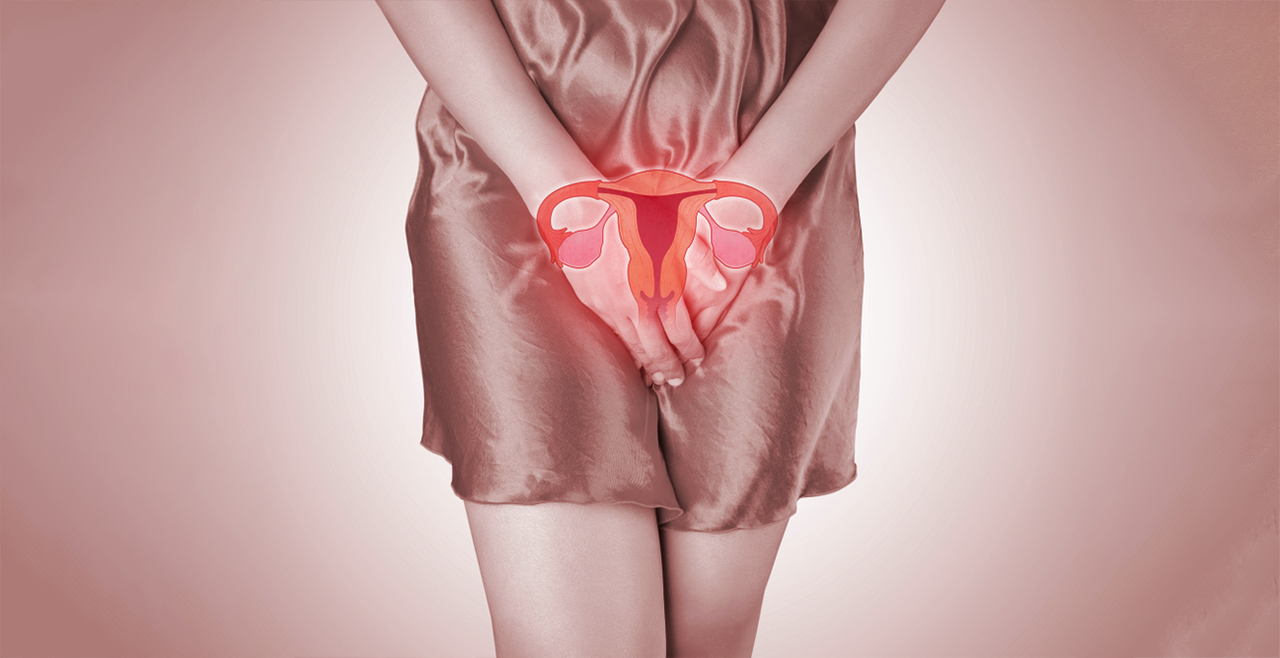
Leucorrhea (Shveta Pradar in Ayurveda)
Leucorrhea, known as Shveta Pradar in Ayurveda, is a condition characterized by abnormal vaginal discharge in women. In Ayurveda, this disorder is primarily associated with an imbalance in the doshas, particularly Vata and Kapha. Ayurveda, the ancient Indian system of medicine, approaches health and diseases holistically, taking into consideration the physical, mental, and spiritual aspects of an individual. Leucorrhea, according to Ayurveda, is a result of disturbed dosha equilibrium, weakened tissues, and impaired agni (digestive fire).
Etiology (Nidana):
Ayurveda attributes the causative factors of Leucorrhea to various imbalances in the body and mind. The key factors include:
1. Dosha Imbalance: Vata and Kapha dosha imbalances are considered primary causes. Vata imbalance leads to dryness and irritation, while Kapha imbalance causes excess mucus production.
2. Poor Digestion (Mandagni): Weak digestive fire (agni) results in the accumulation of toxins (ama) in the body, which can manifest as Leucorrhea.
3. Poor Hygiene: Unhygienic practices, especially in the genital area, can lead to infections and aggravate Leucorrhea.
4. Unhealthy Diet and Lifestyle: Consumption of spicy, oily, and unhealthy foods, along with a sedentary lifestyle, can contribute to dosha imbalances.
5. **Emotional Factors:** Stress, anxiety, and emotional disturbances can impact hormonal balance, leading to Leucorrhea.
**Symptoms (Lakshanas):**
The symptoms of Shveta Pradar can vary in intensity and may include:
1. Vaginal Discharge: The primary symptom is a white or yellowish discharge with or without an unpleasant odor.
2. Itching and Irritation: Women may experience itching, redness, or irritation in the genital area.
3. Weakness and Fatigue: Chronic Leucorrhea can lead to weakness, fatigue, and a general feeling of malaise.
4. Pain in the Lower Abdomen: Some women may experience mild to moderate pain in the lower abdomen.
Ayurvedic Diagnosis (Rogi-Pariksha):
Ayurvedic diagnosis involves a comprehensive understanding of the patient's overall health and the specific characteristics of the condition. The diagnostic process includes:
1. Trividha Pariksha (Threefold Examination):
a. Darshana (Observation): Examining the patient's physical appearance and behavior.
b. Prashna (Interrogation):Asking relevant questions about symptoms, lifestyle, and medical history.
c. Sparshana (Touch) Palpating and examining the body to assess dosha imbalances.
2. Nadi Pariksha (Pulse Examination): Assessing the pulse for subtle imbalances and indications of dosha disturbances.
3. Mootra-Pariksha (Urine Examination): Analyzing urine for any signs of dosha imbalance.
Ayurvedic Management (Chikitsa):
The Ayurvedic treatment of Leucorrhea aims to restore dosha balance, strengthen the reproductive tissues, and eliminate toxins. The therapeutic approach includes:
1. Dietary Recommendations (Ahara Chikitsa):
a. Balanced Diet: Emphasizing a diet that balances Vata and Kapha, including whole grains, fruits, vegetables, and lean proteins.
b. Hydration: Drinking plenty of water and consuming hydrating foods to flush out toxins.
2. Lifestyle Modifications (Vihara Chikitsa):
a. Hygiene: Maintaining proper genital hygiene to prevent infections.
b. Exercise: Engaging in regular, gentle exercise to promote circulation and balance doshas.
c. Stress Management: Incorporating stress-reducing practices such as yoga and meditation.
3. Herbal Remedies (Aushadha Chikitsa):
a. Ashoka (Saraca indica): Known for its uterine tonic properties, Ashoka helps regulate menstrual flow and treats Leucorrhea.
b. Lodhra (Symplocos racemosa):Possessing astringent properties, Lodhra helps control excessive vaginal discharge.
c.Shatavari (Asparagus racemosus): Known for its rejuvenating properties, Shatavari strengthens the reproductive system.
d. Guduchi (Tinospora cordifolia):A potent immune booster, Guduchi helps in the elimination of toxins.
4. Panchakarma Therapy:
a. Virechana (Purgation):Administering therapeutic purgation to eliminate excess Pitta and toxins from the body.
b. Basti (Enema): Medicated enemas to balance Vata and remove accumulated toxins.
5. Yoga and Pranayama:
a. Yogasanas: Specific yoga postures that improve blood circulation to the pelvic region and balance hormonal activity.
Preventive Measures (Swasthya Raksha):
Ayurveda also emphasizes preventive measures to maintain overall health and prevent the recurrence of Leucorrhea:
1. Healthy Lifestyle: Adopting a balanced lifestyle with regular exercise, proper sleep, and stress management.
2. **Hygiene:** Maintaining good personal hygiene, especially in the genital area.
3. **Balanced Diet:** Consuming a nutritious diet with a focus on foods that support reproductive health.
4. **Menstrual Hygiene:** Using hygienic practices during menstruation to prevent infections.
5. **Regular Check-ups:** Periodic check-ups with an Ayurvedic practitioner to detect and address imbalances early.
In conclusion, Ayurveda offers a holistic and individualized approach to managing Leucorrhea by addressing the root causes and restoring balance to the body and mind. It involves a combination of dietary adjustments, lifestyle
modifications, herbal remedies, and, if necessary, Panchakarma therapies. The emphasis on overall well-being, preventive measures, and personalized treatment plans makes Ayurveda a comprehensive system for managing and preventing Leucorrhea.
It is essential for individuals experiencing symptoms of Leucorrhea to consult with a qualified Ayurvedic practitioner for a thorough assessment and tailored treatment plan. Ayurvedic treatments, when followed diligently, not only address the symptoms but also aim to bring about long-term balance and harmony in the body, promoting overall health and vitality.
It's important to note that Ayurvedic treatments should be undertaken under the guidance of a qualified practitioner, as the approach is highly individualized, and the choice of herbs and therapies may vary based on the specific dosha imbalances and overall health of the individual. Additionally, integrating Ayurvedic practices into one's lifestyle, such as proper diet, exercise, and stress management, can contribute to a holistic and sustainable approach to women's health.




